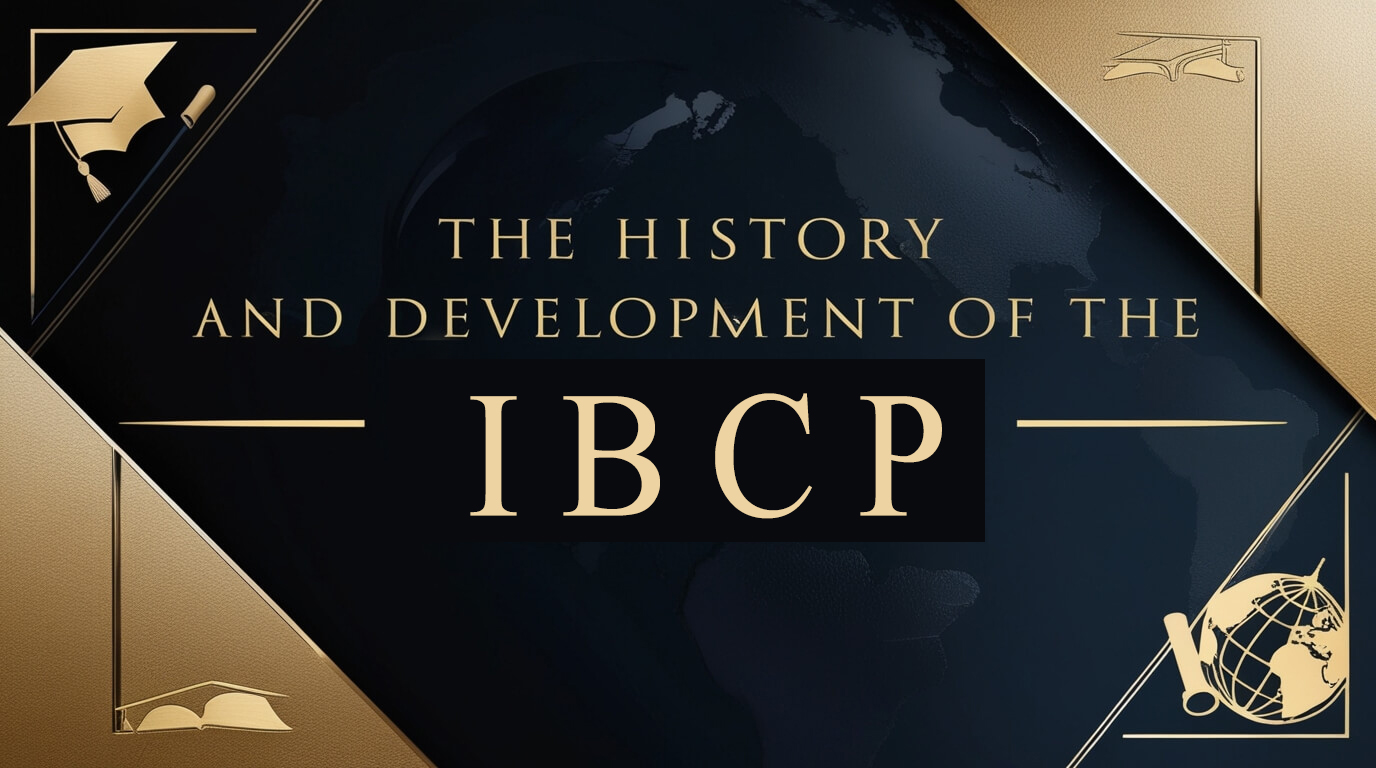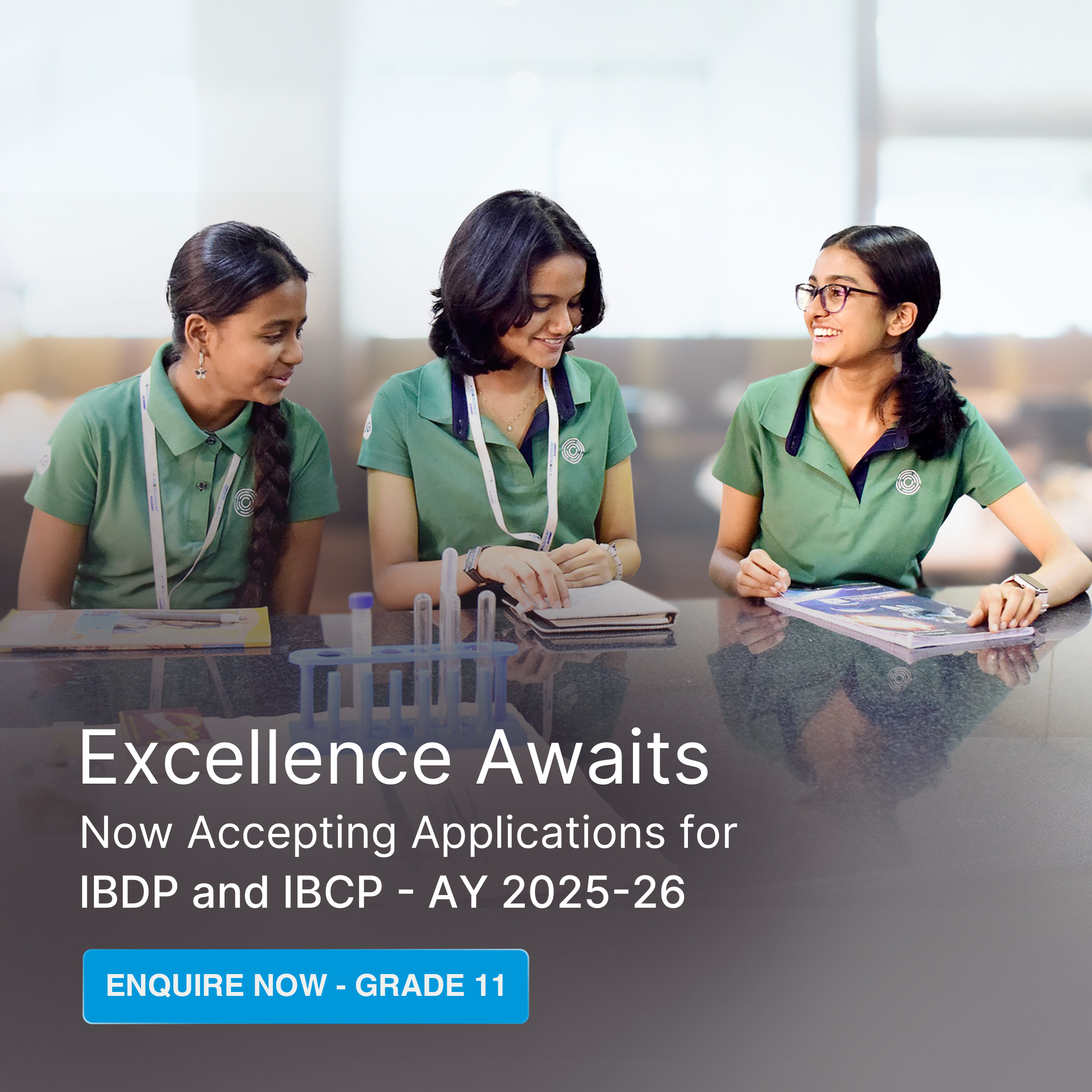The History and Development of the IBCP: A Pathway for Future-Ready Students

The one-size-fits-all model doesn’t always work in matters of education, especially for aspiring and dedicated students who have a deep sense of aspiration and academic goals.
The International Baccalaureate Career-related Programme (IBCP) was designed to address this urge by incorporating academic learning with real-world career skills.
But how did this programme come about, and why is it becoming increasingly popular among students and educators? Let’s take a gander.
The Inception of the IBCP: Addressing a New Educational Need
The Diploma Programme (IBDP) of the International Baccalaureate (IB) is globally recognised. Launched in 1968, it aims to offer students a comprehensive and intellectually demanding curriculum. While the IBDP was a success, the IB identified the diversity in students’ abilities and their requirements and abilities– some students have strong career aspirations and would benefit from a more practical, hands-on approach that still maintains academic rigour.
Until finally, the fruit of such demand materialised in 2012 in the form of the International Baccalaureate Career-related Programme, or IBCP in short. Although its development apparently had been anticipated, it was a guarantee that much more than an academic affiliation would be necessary by the future workforce since employers wanted employees with technical skills who could still think critically, work in teams, and solve complex problems. It was here that the IBCP stepped in, to fill this gap by offering a pathway that represented the best of both worlds: academic excellence, together with career-focused learning.
What Makes the IBCP Unique?
The IBCP was designed with academic flexibility in mind. Unlike the IBDP, which requires students to study a wide range of subjects across various disciplines,this discipline follows a pedagogy that focuses on specific career-related studies (CRS) while ensuring to complete CP core subjects of IB Diploma Programme (DP) courses.
Students today are looking for more than just academic success—they want a programme that sets them apart and aligns with their long-term goals. The IBCP programme at Knowledgeum Academy stands out not only for its strong global reputation but also offers a curriculum tailored to the global economy. It combines rigorous academic studies with career-related learning, helping students build impressive portfolios to seek admissions in Ivy League schools and top international universities.
The IBCP core is another unique aspect of the programme.
The Core Components:
1. Personal and Professional Skills (PPS): A course that equips students with essential workplace skills such as communication, critical thinking, and collaboration.
2. Service Learning: This encourages students to apply their skills in real-life community service projects, fostering a sense of responsibility and citizenship.
3. Reflective Project: An independent research project that challenges students to explore an ethical issue related to their career studies, helping them develop research and critical thinking skills.
4. Language Development: Recognising the importance of global communication, this part of the core ensures that students continue to learn or improve a second language.
The Early Years and Global Adoption
When the IBCP was first introduced, it was offered by only a small number of schools. It was seen as an experiment, a new way to engage students who might not thrive in the more academically intense IBDP or the exam-heavy systems offered by other educational boards.
However, as schools began to implement the IBCP, it became known that this disruptive approach was meeting a new yet real need in the education landscape. Students were not only more cognitively stimulated but also developing skills that were appropriately applicable to the world of work. It was noted that students in the IBCP were more dedicated, as they had the liberty and flexibility to steer their academic journey in their preferred choice of career.
As a result, the IBCP began to grow in popularity, spreading to schools in countries all over the world. It found particular success in regions where vocational education was already highly valued, such as in parts of Europe and Asia, but it also gained traction in the UK and the US, where students and parents were increasingly looking for alternatives to traditional academic pathways.
The IBCP Today: Meeting Modern Educational Challenges
As we move further into the 21st century, the IBCP has become an important part of the IB’s offerings. Several schools are increasingly recognising the merit in providing a flexible, career-oriented programme that is up to the global standards that match the realistic expectations of top global universities and firms.
In today’s evolving world, the IBCP is more relevant than ever. The advent of technology, the gig economy, and urbanisation have created new scope and challenges for young people entering the workforce. The IBCP is structured to prepare students to become self-aware and reliant leading towards entrepreneurial endeavours.
In many ways, the IBCP is a response to the demands of today's world. Employers of today are not only seeking for qualification but want solution-driven, self-starters who have a vision and potential to lead.
Conclusion: A Pathway to the Future
The history and expansion of the IBCP are indicative of a rising realisation that education is meant to encompass more than merely academic success. In addition, it ought to educate students with the information and abilities necessary to thrive in a world that is changing quickly and take charge and be an active part of leading that change in their career path as well as academic goal.
Offering a strategic approach to educate and empower students,the IBCP has been noted to be mostly preferred by students aiming for ivy-league and top universities abroad, as well as those looking to excel in business and entrepreneurship. As it continues to grow and evolve, the IBCP is shaping the future of education—one student at a time.
For those who are ready to take charge of their learning and are motivated by the zeal to achieve their career goal or seek further feats in education, the IBCP makes for a perfect curriculum to consider.




